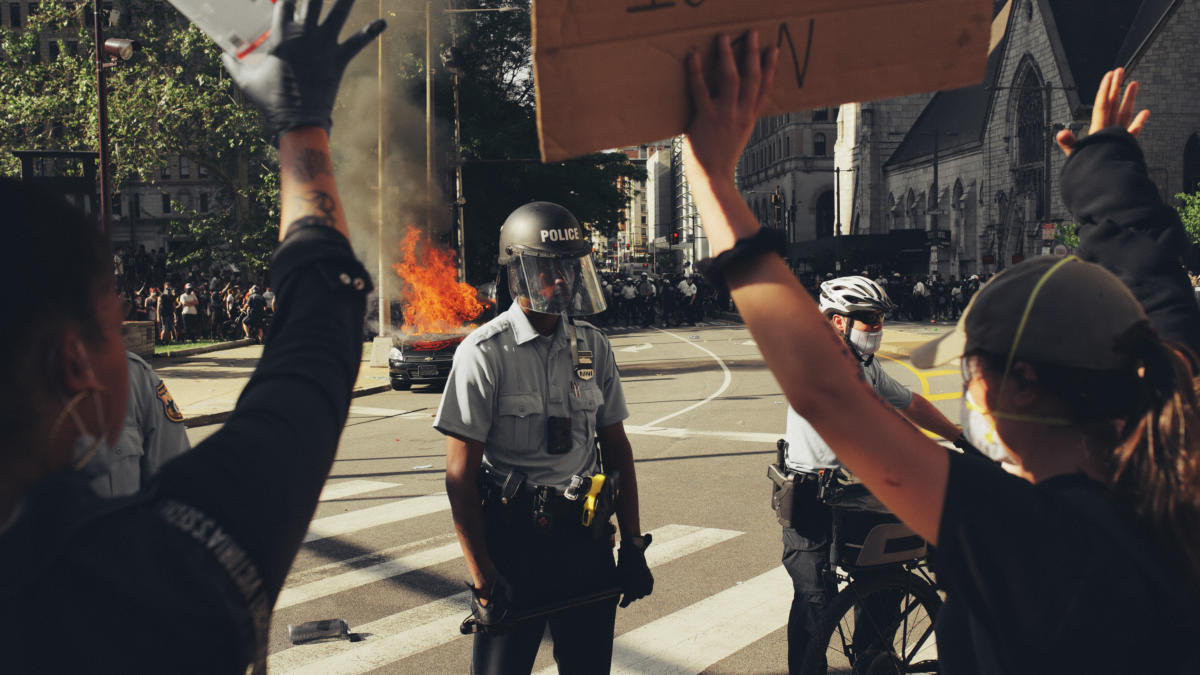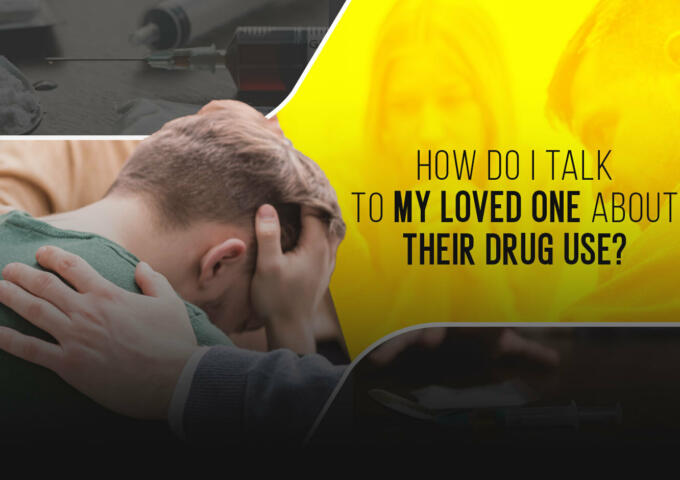The SHOUT Out
Thousands of Philadelphia residents have taken to the streets following the death of George Floyd.
Your turn: If you’re protesting, we want to hear your story. Share your thoughts at voices@philadelphiaweekly.com.
Pandemic no excuse to harm environment
The COVID-19 pandemic has been instilling fear, anxiety, and stress among the global population, and it is safe to say that it has shone a light on the underlying problems at the core of various governments around the world. In the United States especially, the pandemic has exposed various systemic problems that should have triggered action from the current administration. However, nothing has changed. And the EPA has decided to leverage the pandemic to put the final nail in the coffin for many environmental regulations.
The pandemic is not a justifier to weaken limits on greenhouse gas emissions and roll back rules governing clean air, water and toxic chemicals. This situation should be an awakening to veer off from fossil fuels and more aggressively reduce anthropogenic carbon emissions. Fighting these rollbacks and amplifying an environmentally conscious narrative is crucial now more than ever.
Edoardo Amaniera and Kalyxa Roman | Philadelphia

The human cost of denial
The Conversation that those who understand the life and death consequences of racism have been begging America to have for hundreds of years is finally starting to happen on a broader scale.
The Awareness that many grassroots organizations have tried to bring to the forefront of our collective social consciousness is now so dominant in both traditional and digital platforms that the entire planet has become aware of America’s great crime. The final pleas of George Floyd, murdered by a police officer in Minneapolis, continue to echo through the streets in every corner of the globe – a constant reminder, not just of police brutality, but of the plague of racism that exists in all sectors of our society and the need to eradicate it from all systems that wield power over the lives of American citizens.
In the wake of that murder, brave protesters took to the streets despite the violent backlash from police officers, white-supremacist infiltrators and a global pandemic, forcing local, state and federal government to reflect on how to finally reform systems so that they don’t kill people based on the color of their skin. While the protesters ruled the streets, other racial justice warriors took to the web to expose the racism of religious leaders, CEOs, members of the media, politicians and educators. In doing so, the gargantuan effort it takes to turn a blind eye to injustice is now too much for most people, even NFL Commissioner Roger Goodell, who admitted that the NFL dropped the ball in 2016 when Colin Kaepernick and other players took a knee during the National Anthem to protest police abuse. His protest and the backlash against him essentially ended his career; yet, Goodell, in his statement, never mentioned Kaepernick’s name.
When we look back on this moment in American history, after so many people of color have been gunned down by those sworn to protect, we will ask what took so long for the once most powerful and democratic nation in the world to take collective and meaningful action. Why were people like Kaepernick punished and people like Rush Limbaugh given the Presidential Medal of Honor? Why did it take so long for our own military to ban the Confederate flag? It is because racism, whether acknowledged or not, is so ingrained in our culture, so much a part of all power structures that it takes a viral video of a man begging for his life for over eight full minutes to spur a nation to confront its horrific history of denial.
While the majority of the nation seems willing to accept that injustices of all kinds continue to disproportionately punish Black and Brown Americans, our own president is using this moment to try and paint protesters and the press as the enemy, hold a rally the day after Juneteenth, the day many Americans celebrate the end of slavery, in Tulsa, Oklahoma, site of one of the most tragic and deadly racist mass murders in our country’s history. It seems that he and his followers are also no longer denying the racism that exists in the highest offices of government.
As far as defunding and restructuring police departments with the most egregious records of abuse and corruption, there is no other moral or practical choice. Philadelphia City Councilwoman Kendra Brooks, of the Working Families Party, said in a recent Radio Times interview “I remember, in my generation, the war on drugs. It was raised against Black people in the ‘80s and ‘90s and you had police criminalizing communities of color. That didn’t make us feel safer. The effects of that still last now, to this day.”
We also see the effects of The Blue Wall of Silence, where officers stay silent when their colleagues engage in illegal and inappropriate behavior. Often, when officers are investigated for wrongdoing, cases end up in arbitration where many officers who have committed heinous acts, are released back to patrol the streets. To make matters worse, in cities like Philadelphia, many residents fear going to the police because of the “Don’t Snitch” code that puts them in real danger and they don’t feel like the police can adequately protect them, contributing to a “homicide clearance rate” of 47 percent.
We should start reform with the police, because it is an immediate matter of life and death. But we can’t ignore similar cultures that exist within religion, business, media, politics, health and education. Those obviously need to be reformed as well. We may not be able to root racism from the hearts and minds of all Americans, but it is our moral and civil obligation to root it from any system, from small businesses to universities, in order to turn the fantasy of liberty and justice for all into an American reality.
Nate House | Philadelphia
Philly jaunts and Spielbergian epics
It’s the fall of 1989. My father is driving me and my little brother in his white Porsche 911, a shoebox-sized car-phone on the floor just below the dashboard. In a moment of frustration, probably remembering he needs to call “Duffy” or another colleague to shout at, my father picks up the massive car phone and places it to his shoulder. As usual, he is not wearing a seatbelt.
My 6-year-old self is also sitting in the front seat next to him, long reddish-blonde curls falling to my waist, wearing sneakers, a sweat suit, and a jean jacket. My brother, Little Eddy, four, is crammed into the tiny backseat.
My father is yelling epithets at his colleague on the phone and waddles his head from side to side, a tic that shows that he’s getting angry, and his voice raises to a familiar, hoarse fever-pitch.
Then, he puts down the massive car phone, finally. He turns to me and then looks through the rear-view mirror at Little Eddy, who is wearing a sweat suit of a different color that vaguely matches my own.
“How ‘bout we go to the hospital for rounds, and then we’ll get a bite to eat in Center City?” my father says.
“Yeah!” We exclaim in unison.
He accelerates down the hill and hangs a right to get on the 76 East expressway heading into Philadelphia from Gladwyne, all the while enthralling Little Eddy and me with the Porsche’s speed and his fantastical stories.
Sometimes, my father’s stories are just quick anecdotes. At other times, they’re Spielbergian epics. Always, his stories are always delivered with a ton of embellishment, magic and a heavy dose of charm, inspiring rapt attention and a feeling of pathos in the audience.
Today, it’s an epic adventure complete with vampires and werewolves set in Brigantine, New Jersey, where my father summered in his youth.
The mood is set: We head onto the highway, past Gladwyne’s giant, cragged cliffs and overgrown green brush – past unkempt, unattended forests where bamboo runs wild and white-speckled deer roam free. They see us off as we zoom by.
My father takes after his own father in profession – my grandfather Poppy David, who was also a surgeon. “He is the best surgeon I have ever seen,” my father would say, remembering standing next to his own father at work in the operating room. Even as a child, he expects me to step into the same role: to one day become a doctor. On Saturdays, he takes me and my little brother downtown to Graduate hospital to complete his rounds.
In my father’s stories, he styles himself as the hero. He is not quite the high school senior with a chip on his shoulder getting into fistfights with anti-Semitic teenagers and flunking his high school English class. In my father’s stories, he and his brother Uncle Ollie exist in a sort of ageless sphere where responsibilities, careers, and family life do not yet matter, and where Poppy David’s commands that my father become a doctor fall on deaf ears. My father’s stories take place before my father woke up and “came to his senses,” ignored his clearly inferior instinct to become a writer. Locked down his demons and became a doctor. Manned up.
The setting of these stories is another time, and another place: the intractable nights of the New Jersey shore, a land crawling with vampires, werewolves and ghosts, and stalked by monsters – at least, in my father’s stories.
“We slayed the werewolf, but how?” my father asks midway through the climax of the tale, as Philadelphia’s skyscrapers loom in the distance.
“You shot him with a silver bullet!” we exclaim. By the ages of 4 and 6, my brother and I know every method of killing every conceivable monster. Shoot the werewolf with a silver bullet. Drown a witch. Put a stake through a vampire’s heart.
My brother and I feel refreshment and satisfaction wash over us, something like wonder filling up in our hearts and minds, once the story has reached its denouement, and yet we clamor, “Another story, Daddy!”
My father thought the whole way through that he was grooming me to become a doctor like him and my grandfather, that maybe I would stand next to him one day in the operating room and remark that he was the best surgeon I had ever seen, but what he was instead cultivating in me was a love of truth ensconced in fantastical fabrication. Despite weekend trips to the hospital and the best of intentions, it was my father’s stories and his role as storyteller that I paid attention to, for I could tell in his tales how much he lived, breathed and loved stories, too.
Kirkley Mehndiratta | Boston

City should fund services, not cops
Black lives matter. We stand with Black people in the fight against police brutality, white supremacy and institutional racism. The ongoing police brutality and murder of Black and Brown people – from the murder of George Floyd, to firing rubber bullets at protesters, to gassing residential blocks – is disgraceful and it needs to stop.
The beautiful and powerful mobilizations across our nation and our state were escalated into violence by the police, who met peaceful protests with excessive force, rubber bullets, riot gear and tanks. Instead of acknowledging the pain and injustice our communities are speaking out and mobilizing against, the police and military left protesters beaten and bloodied all across this country.
We will not entertain a media narrative that condemns the expressions of Black pain without condemning the cause of that pain. We will not entertain the PR stunts of police officers kneeling with protesters as long as they are willing to terrorize and kill the people they claim to protect and serve. We stand with the #BlackLivesMatter movement and echo their demands to defund the police nationwide.
In Philadelphia, that begins with City Council rejecting Mayor Kenney’s $14 million budget increase for the police department, and diverting those funds to critical city services like education for our young people. We encourage our Philadelphia members and allies to sign the Philly We Rise petition and contact their councilmembers.
We cannot stand by and wait for our government to change. The system cannot reform itself; it’s up to us to transform it. That is what protesters across the state and across the country are doing, and we are with them, in the streets and in solidarity. A new system must be created, and we can start by defunding the police. We make the road to that future by walking.
– Maegan Llerena is the executive director of Make the Road Pennsylvania
Parker’s project would harm East Oak residents
I’m a resident of the East Oak Lane section of Philadelphia, represented by Councilwoman Cherelle Parker.
This is what Parker is doing to her East Oak Lane constituents:
Parker is aggressively pushing through a zoning variance for a project for the building of a high-density, multi-unit apartment building, without off-street parking, in a narrow intersection in East Oak Lane. If the project goes through, it will be in the midst of the nearby elementary school, library, a church and the firehouse. This will lead to the risk of children being hit by cars as they walk to and from the library and the school. With traffic congestion and parking, it will obstruct fire trucks from being able to travel through that intersection. That could lead to deaths.
Parker knows all of this. There is solid, strong, vocal opposition to this project in East Oak Lane. She also knows this. Her response – really, lack of response – to our community is appalling. A member of the Board of the Oak Lane Community Action Association (olcaa.org) called her response to a letter about this zoning variance “demeaning.”
Apparently this project benefits Parker personally in some way, and that’s why she is determined to force it on the residents of East Oak Lane. This is an appalling example of the pay-to-play, corrupt, greedy practices that take place far too often in Philadelphia politics.
I have seen reports that she will be running for mayor. The citizens of Philadelphia need to know that this is how she treats her constituents. And I urge the city Zoning Board of Adjustment to deny this zoning variance to Parker.
– Patty Quinn | Philadelphia





